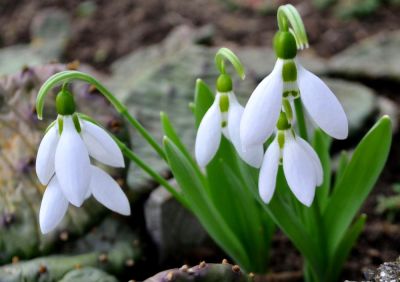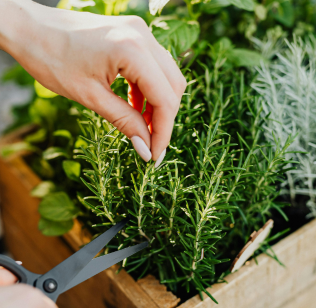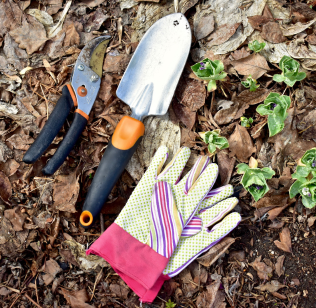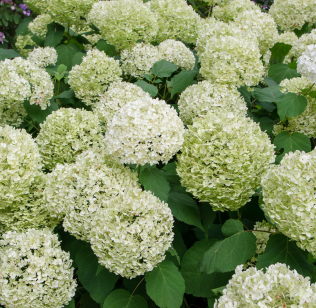
Hello February!!
You can really sense that spring is just around the corner, with snowdrops and daffodils starting to appear and buds swelling on the trees. Please make the most of dry days with our top 15 gardening Jobs For February.
Top 15 gardening tips for February
-
Prune winter-flowering shrubs like Mahonia and Viburnum x bodnantense as soon as they’ve finished flowering, to keep their shape neat.
-
Prune bush roses now while they are still dormant. Remove spindly growth and any dead or crossing branches, then cut the remaining stems down by half, cutting just above strong, outward-facing buds. Use a sloping cut so that rainwater drains away from the growing buds.
-
It’s time for your wisteria’s first pruning of the year. Prune last year’s long whippy stems to within 3-4 buds of the main stems.
-
Prune fuchsia and buddleja, cutting fuchsias back to one or two buds from the old wood, and buddleja stems back to about 30cm (1ft) above ground level.
-
Once deciduous grasses like Deschampsia and Calamagrostis start to look bedraggled, cut the dead foliage back. (Leave Miscanthus and Pennisetums until later in spring.) To keep evergreen grasses like Carex and Festuca looking good, comb through with your hands (wearing gloves) to remove dead foliage.
-
Cut back epimediums to remove old dead leaves, so that the new flowers are easier to see when they appear.
-
Cut back Cornus sanguinea (Dogwood) to 15cm (6in) above ground. This will promote the growth of new, brightly coloured stems for next winter.
-
Prune autumn-fruiting raspberries now before the new growth starts. Cut all canes down to ground level.
-
February is a good time to plant new shrubs and trees, as long as the ground isn’t frozen or waterlogged. Water new trees in well and stake after planting.
-
Once snowdrops have finished flowering, dig up big clumps, divide and replant to encourage them to spread.
-
From mid-February onwards, start chitting first early seed potatoes. Place the potatoes in a bright, frost-free spot indoors, with the buds pointing upwards. They should start to sprout shoots and be ready to plant in 4-6 weeks, once the shoots are about 2cm (1in) long.
-
Get your seeds organized by sowing month, so that it’s easier to remember to sow them on time.
-
Start sowing seeds indoors. In late February, sow summer favourites like tomatoes and cucumbers in small pots place them on a sunny windowsill or in a greenhouse to germinate.
-
Clear weeds out of vegetable beds and dig in compost.
-
On a dry day, spring-clean glasshouses and cold frames, washing them down with warm soapy water to get rid of lurking pests and diseases.
Get your gardening year off to a great start. Whether it’s tools, plants or seeds you’re looking for, you’ll find everything you need in our centre, so visit us today!





